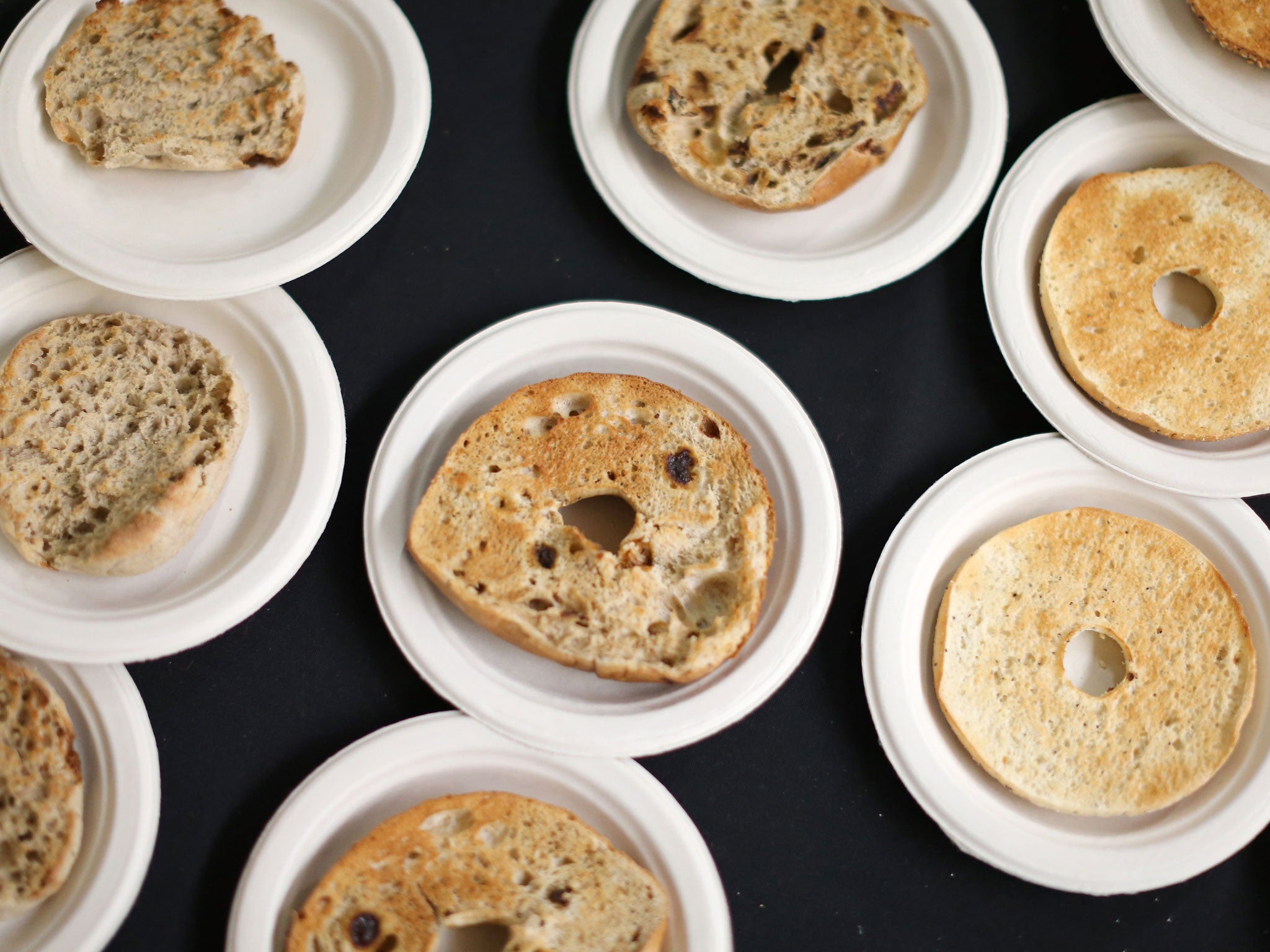A freshly-cooked bagel is good for the soul
Samuel Muston makes a pilgrimage to Beigel Bake in London each week

Years ago, when I lived in Shoreditch in London, I would wake up feeling muzzy-headed on a Sunday, and go in search of food on Brick Lane. People who didn't know the area well would assume I was heading for an early morning curry, the area being primarily known for its 10 million or so curry houses.
My real destination was more palatable at 11am: the bagel shops at the top. There are two purveyors of bagels here, pretty much cheek-by-jowl. Everyone has their own prejudice as to which is the better. I was all for the brusque impoliteness of Beigel Bake. I felt it was good for the soul after the previous night's excess.
Now, I live a few miles north of Shoreditch and so on Sunday morning I decided to get on a bus back there. As pilgrimages go, it wasn't exactly a trip to Lourdes. But on a Sunday morning, distance is dependent on hangover. And I was, well, a little "unwell", in the Jeffrey Bernard sense. The question is, why is it necessary to travel, in my enfeebled state, to get them? I live near a Tesco. Tesco sells bagels. Which is true – but also not true. What Tesco sells are bagel-shaped objects.
A real bagel is an elegant thing, constructed of simple ingredients: salt, high-gluten flour, water, yeast, malt. The raw dough is boiled before baking, which gives it a light caramel colour (spurn the blond bagel – it will never make you happy). It ought not weigh more than 40z and you want to eat is when it is not more than five to six hours old.
The history of the bagel is pretty opaque. The most oft-repeated story has it that it owes its creation to King Jan Sobieski of Poland. Good King Jan did two things to please the bakers. First, in the middle of his reign in the 17th century, he disavowed the 1496 decree that limited the production of white bread. Second, the real crowd-pleaser, he saved his country from a Turkish invasion and, in his honour, the bakers made breads that looked like his stirrups.
The bagel has endured the tide of centuries for two reasons in particular. The first is purely logistical: the hole in the middle means that the bread can be threaded onto a rope or stick, making it considerably easier to transport than unwieldy loaves. The second is that bagels last longer than tradition l bread: if they became stale, they could be dipped into hot broth.
From those modest beginnings, the bagel went skywards. In 1907, so popular was it that its makers unionised. They formed the most sweet-sounding of labour organisations: the International Beigel Baker's Union, which monopolised production in New York. The next stop for the bagel: Broadway. Its break into stardom came in the 1950s. By that time, the cream-cheese bagel was close to supplanting the traditional, Saturday-morning ham, eggs and toast in America. It had saturated the culture. The musical Bagels & Yox was born. The main attraction of the production, for the greedy at least, was that fresh cream-cheese bagels were handed out to the audience in the interval.
If there was one way a Broadway production named after a piece of bread was going to lure me in, it is with the rich, yeasty smell of cooking bagels. Standing outside the shop on Brick Lane, I could almost chew on the air. Does it still count as a pilgrimage if you go every week?
Join our commenting forum
Join thought-provoking conversations, follow other Independent readers and see their replies
Comments
Bookmark popover
Removed from bookmarks